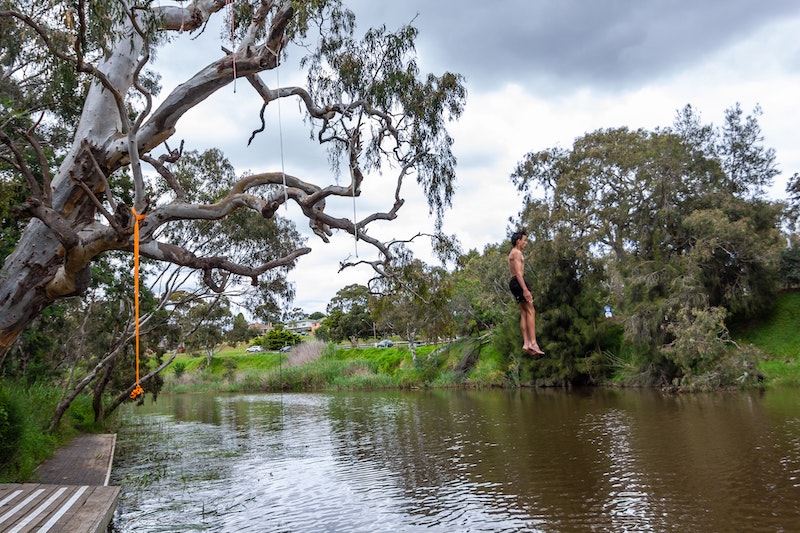Water Minister Tanya Plibersek has released the “Roadmap” document accepting Australia’s water trading markets are “a market-design car-crash” and backed the findings of the long-awaited ACCC report. Authors of Sold Down the River, Stuart Kells and Scott Hamilton, report.
Over a span of years if not decades, people in the Murray-Darling Basin have raised serious concerns about the water market, and the conduct therein of brokers, traders, ‘investors’ and ‘speculators’.
At first-hand, farmers, irrigators and other people in rural communities saw widespread evidence of market manipulation, front-running, insider trading, conflicts of interest, and brokers ‘trading their own book’. The benign idea of farmers trading their water rights had turned into some kind of 1980s Wall Street nightmare.
In our own research, we showed these concerns to be valid, and we also identified problems in the quality of market information, and in large traders’ use and abuse of market power. We found that around half a dozen hedge funds dominated the Murray-Darling Basin water market, and everyday farmers had no chance of competing on a fair and equal basis.
But again and again, people in the Basin were told ‘nothing to see here’ – despite the glaring evidence that Australia’s largest experiment in market-based natural resource management had run off the rails. Bodies such as the Productivity Commission and the Australian Competition and Consumer Commission (ACCC) were meant to review the market objectively, but they became cheerleaders for unfettered trading. Not until 2021 did the ACCC come clean, when deputy commissioner Mick Keogh delivered a damning 700-page report to Treasurer Josh Frydenberg.
The Morrison government then asked Daryl Quinlivan AO to develop what they called ‘a phased plan’ (“roadmap”) for water market reform that is practical, cost-effective, and supported by Basin states, by 30 September 2022’ (Development of Implementation Roadmap – Scope of Works).
Water trading a wreck
On 11 October 2022, newly minted Federal Minister for Water, Tanya Plibersek released the roadmap report, in which Quinlivan finally confirmed what rural people had known all along. Water trading was a market-design car-crash. In the preeminent dimensions of integrity, information and governance, the market was a failure.
In this light, the roadmap contains recommendations to:
- Improve the functioning, governance and transparency of water markets
- Prohibit price manipulation and insider trading for all tradable water rights, including water delivery rights
- Introduce integrity safeguards, including professional standards for brokers, comparable with those applied in other markets
- Ensure water market participants have sufficient information to make informed water trading decisions.
Minister Plibersek has announced that the Federal Government supports all the roadmap recommendations. ‘Unlike Australia’s financial markets,’ Minister Plibersek said, ‘water markets are poorly regulated and lack the features that make comparable trading markets work effectively and transparently; for example, unlike in financial markets, there is no regulation around broker behaviour, no prohibitions against market misconduct, and few reporting obligations.’
The roadmap requires the Commonwealth to enact market conduct and integrity legislation for the whole of the Murray-Darling Basin-wide, which extends over four states and one territory. Once implemented, that legislation will be important vindication of the water market concerns of people in rural Australia. Though the roadmap is not perfect, we are optimistic that it will usher in a step-change in the integrity of water trading.
We wrote our 2021 book Sold Down the River in large part because rural people had an important message about water trading, and at the same time they felt no-one was listening to the message. We believe that part of the role of journalists and writers is to expose important stories – especially those that are not being properly told. This is how public affairs and civil society are supposed to work.
We also wrote Sold because the message of ‘nothing to see here’ had intruded into the academic and para-academic literatures. In our own work, we certainly did find that there was ‘something to see’ – and we were determined to describe and share that ‘something’, in order to shift the debate and the discourse. Again, this is how scholarship and academia are supposed to work.
In Sold, and in articles we’ve written over the past three years, we expressed our concern that the normal ‘error correction process’ of public policy was not working in the case of the water market. There were powerful reasons for this. The water market is shrouded in complexity; complexity is in its language and in its basic design, and this is a barrier for generalists from other fields, including politics and economics.
Vested interests, too, have been powerful protectors of the broken market, and they have waged hot and cold wars at the frontiers of the water policy conversation. Traders have formed fertile relationships with tame front-people, unscrupulous spin-doctors and second-rate think-tanks. Using bogus analysis and ideological crutches, the traders and their foot-soldiers have policed and perverted the water policy debate.
Decades from now, when scholars look back on Australia’s water experiment as an example of what not to do in market-based public policy, the market design will be a rich subject for study, and so will the parts played, long after the fact, by the people who said, with unearned confidence, that there was nothing to see.
Scott Hamilton and Stuart Kells are the authors of ‘Sold Down the River’ (Text Publishing).
In land of flooding rains, we still don’t give our biggest river system the care it needs


